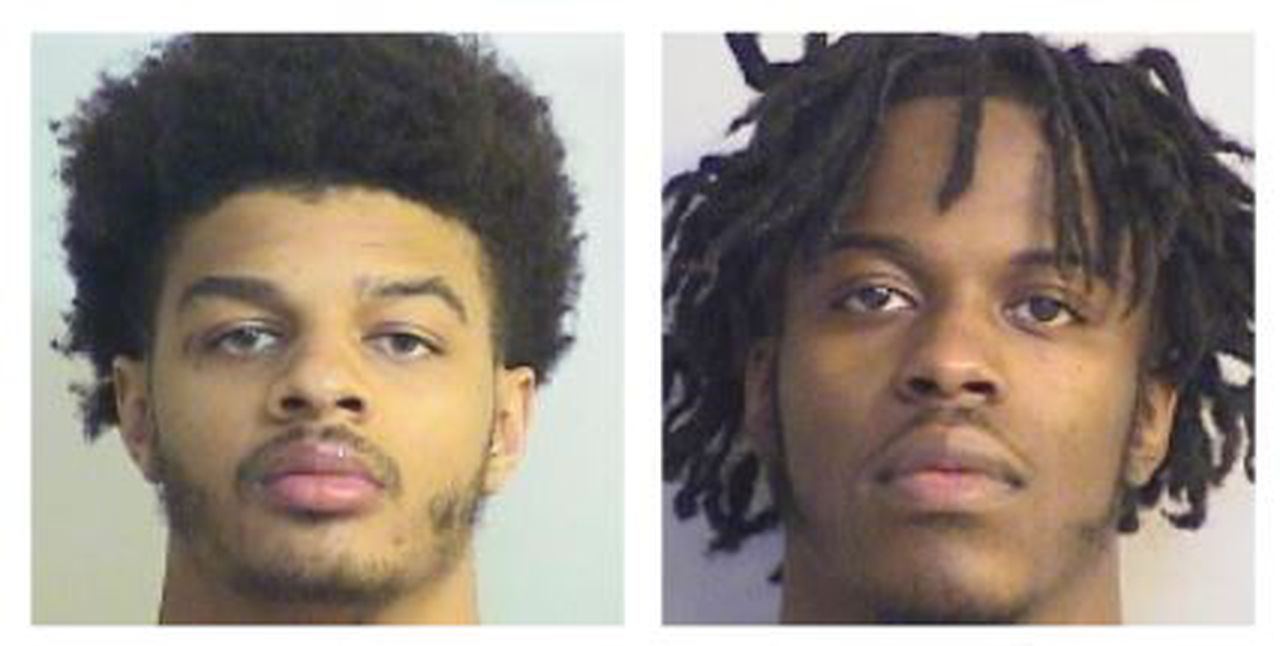Why wasn’t Brandon Miller charged? Legal experts say it comes down to intent
Court testimony that Alabama’s freshman basketball standout Brandon Miller brought the gun used in the Tuscaloosa strip killing of a woman last month stunned the sports world and beyond, immediately raising the question as to why he, too, wasn’t charged in the crime.
Tuscaloosa police Detective Branden Culpepper testified in court on Tuesday that Miller brought the gun that was used in the shooting death of Jamea Jonae Harris. But the gun belonged to 21-year-old Darius Miles, Miller’s former teammate, according to the testimony.
Miles and his longtime best friend, 20-year-old Michael “Buzz” Davis, are charged with capital murder. Police say Davis pulled the trigger.
Legal experts told AL.com the decision whether or not to charge Miller comes down to knowledge and intent.
“Based on what we know, the declination by the Tuscaloosa DA is correct and Miller should not be charged,’’ said Jay Town, a former U.S. Attorney and prosecutor in Madison County. “It doesn’t appear evidence exists that Miller knew that transferring the firearm was for an unlawful purpose, hindsight notwithstanding.”
“Therefore, no (conspiracy or aiding and abetting) would apply,’’ Town added. “It doesn’t seem there is a federal theory of prosecution either,’’ under federal laws.
Jamea Jonae Harris, 23, was shot to death on the Strip in Tuscaloosa. She leaves behind a 5-year-old son, Kaine. (Special to AL.com)
The slaying happened in the early-morning hours of Jan. 15. Harris and her boyfriend stopped to get food from the Quick Grille on Grace Street and encountered Davis and Miles. According to testimony and Harris’s family, Davis danced in front of Harris’ black Jeep and tried to get her phone number.
Harris’s boyfriend told Davis to move on. Culpepper testified that Miles texted Miller and asked him to bring his gun, which he left in Miller’s car earlier that night.
When Miller came to the scene, Miles told Davis where it was and that there was a round in the chamber.
Moments later, Davis shot into the victims’ vehicle, striking Harris in the face. The boyfriend, Cedric Johnson, returned fire and struck Davis twice.

Darius Miles and Michael Davis are charged with capital murder in a deadly shooting on the Strip in Tuscaloosa on Jan. 15, 2023. (Tuscaloosa County Jail)
Here is full coverage of the case
“There’s not much dispute about the fact that the act occurred,” said Tommy Spina, a longtime defense attorney in Birmingham. “From what I know, intent, in this case, on the other hand, would have to be shown by circumstantial evidence.
“Prosecutorial decisions are discretionary with law enforcement and prosecutors,’’ Spina added. “It has been said that criminal law is an ‘island of technicalities in a sea of discretion.’’’
After the court hearing on Tuesday, Tuscaloosa County District Judge Joanne Jannik ruled that there was enough evidence to send the case to a grand jury for consideration of indictments against Miles and Davis. Both remain held without bond.
Asked by AL.com why Miller was not charged, Tuscaloosa chief deputy D.A. Paula Whitley said, “That’s not a question I can answer. There’s nothing we could charge him with,’’ according to the law, she said.
Alabama coach Nate Oats said Tuesday that Miller is “not in any trouble” as a result of his alleged involvement.
Spina said it seems that Miller wasn’t charged with any crimes because there was not enough evidence to establish that he had a specific intent to participate in a gun fight resulting in a death or that he had any knowledge of what was going on.
“Again, purely discretionary with law enforcement and prosecutors,’ Spina told AL.com, noting that most crimes require the convergence of an act and a state of mind.
“You can’t just run a can opener around someone’s head and look in there and find intent,’’ Spina said. “Apparently, there wasn’t enough evidence to establish that Miller had the specific intent to participate in an act resulting in a death.”
In criminal cases, decisions on who to prosecute and on what charge are based on probable cause, a legal standard that means a reasonable person would believe a crime had been committed.
“It is the lowest standard of proof in our system of laws, the highest being, ‘beyond a reasonable doubt,’’’ Spina said. “It doesn’t take much to establish probable cause to charge someone in a criminal case.”
“You can’t charge everyone, or you end up with no witnesses,’’ he said. “With no witnesses, prosecutors struggle to prove a case ‘beyond a reasonable doubt.’”
“Bad judgment and poor choices,’’ Spina said, “do not always add up to the commission of a crime.”
Town said that though he doesn’t believe Miller is legally liable, “this is a tragic and regrettable reminder that we all have a moral duty to deescalate moments that could lead to violence.”
“Retreat is not weakness,” he told AL.com. “It’s wise. And it’s the law.”
“You’re not being a loyal friend by enabling the moment,’’ Town said. “You’re at least becoming a witness, and in some circumstances, you may become a defendant.”
